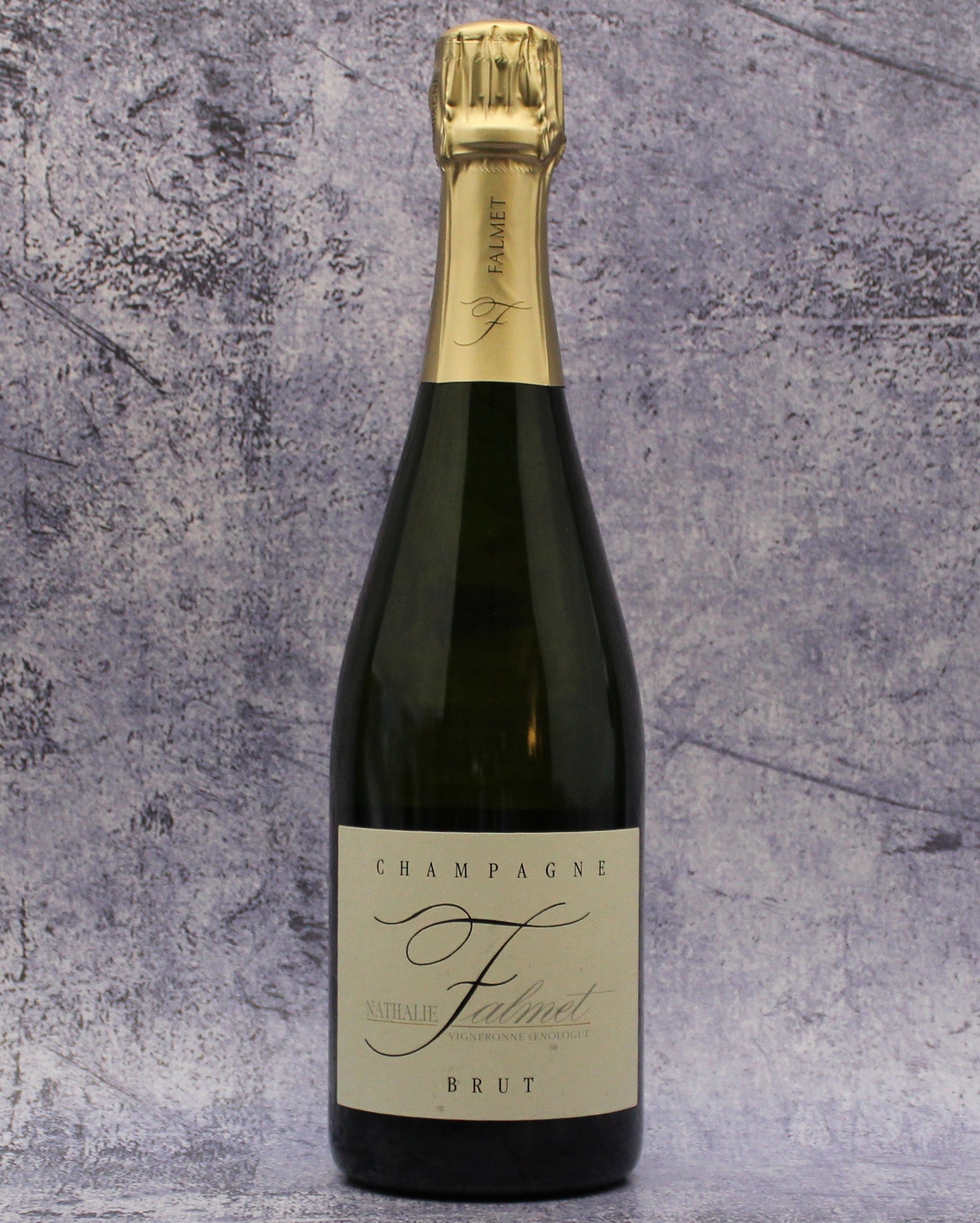Description
From: Côte des Bar, Champagne, France
Varietal: Pinot Noir, Chardonnay
Taste & Critical Acclaim: “The NV Brut is made of 50% Pinot Noir, 30% Chardonnay (both 2011) and 20% Reserve (from a Soléra started in 2009). Its refined aromas of bright fruits migrate to a very light and delicate first palate. This champagne is dry (dosage: seven grams per liter) and firmly structured, but really fine and elegant, and provided with a good length and subtle mineral flavors.” - 91 Points, Robert Parker's Wine Advocate
“This almost dry Champagne is balanced and tightly crisp. It comes from a solera that is renewed annually, giving a touch of maturity while also retaining freshness. The wine has a lively mousse and lemon aftertaste, ready to drink now.” - 91 Points, Wine Enthusiast
“Sweet smoke and spice notes waft through this floral and aromatic Champagne, along with bright, citrusy acidity and layers of tea rose, biscuit, vanilla and candied orange peel. Very charming.” - 91 Points, Wine Spectator
Pairing: Classic French dishes like Blanquette de Veau, with its creamy sauce and tender veal, are beautifully balanced by the wine’s vibrant citrus notes, cutting through the richness and enhancing the dish’s flavors. Similarly, the buttery and indulgent Lobster Thermidor pairs perfectly with the Champagne’s lively mousse and crisp finish, while smoked salmon on brioche is elevated by the wine’s bright fruit and subtle minerality, creating a delightful contrast to the smoky richness of the fish.
Another classic pairing is Coquilles Saint-Jacques, where the sweet, delicate scallops in a rich, creamy sauce are complemented by the Champagne’s freshness and delicate bubbles. Even a simple dish like Poulet de Bresse Rôti, roasted with herbs and butter, matches the wine’s minerality and elegance, offering a comforting yet refined combination.
For more contemporary options, the Brut Champagne pairs wonderfully with avocado and citrus salad topped with toasted almonds, where its acidity and minerality enhance the freshness of the citrus and avocado while balancing the richness of the nuts. A dish like crispy tempura vegetables with lemon aioli also shines with the Champagne, as the light and delicate palate of the wine complements the crispy texture, and the citrusy notes cut through the richness of the aioli. Try it with sashimi with yuzu ponzu sauce is an excellent modern pairing, with the Champagne’s floral and citrus elements playing beautifully with the clean, fresh flavors of the fish and enhancing the yuzu’s bright, zesty character.
Creamy Pan-Roasted Scallops With Fresh Tomatoes
By Melissa Clark
About. In the heart of the Côte des Bar, the southernmost region of Champagne, Nathalie Falmet has built a reputation for producing distinct and elegant wines that reflect the terroir and her scientific precision. With a background in chemistry and enology, Falmet brings a thoughtful and highly technical approach to her work as a winegrower in the village of Rouvres-les-Vignes, where she tends her 3.4-hectare vineyard.
Nathalie Falmet's journey to becoming a celebrated champagne producer began far from the vineyards. After studying chemistry at Paris XI and graduating with a degree in enology from Reims in 1993, she returned to the family estate in the Côte des Bar. Taking over the reins of the vineyard was both a personal and professional decision, as it allowed her to merge her scientific expertise with her deep connection to the land. Today, Falmet splits her time between winemaking and consulting in enology, a dual role ensuring her wines are crafted with innovation and tradition in mind.
Falmet’s vineyard is rooted in the rich Kimmeridgian clay-limestone soils, a geological layer that defines much of the Côte des Bar. These ancient soils underpin Burgundy and Chablis and give her champagnes a unique minerality and depth. The diversity of her plots allows her to explore different expressions of Chardonnay, Pinot Noir, and Pinot Meunier, the three primary grapes of Champagne.
Falmet practices sustainable viticulture, a method that respects both the environment and the grapes. She emphasizes minimal intervention in the vineyard, allowing nature to dictate much of the process. "My philosophy of growing the vines, vinification, and winemaking is, of course, the healthiest, as far as the respect of nature is concerned, but it also leads to a purity and unmatched quality of wine," she explains. By promoting biodiversity in her vineyard and eschewing chemical treatments, Falmet ensures that her grapes fully express the nuances of their terroir.
What sets Nathalie Falmet apart from many other regional producers is her hands-on approach in the vineyard and the cellar. She meticulously manages every aspect of her small production, ensuring that each bottle reflects her dedication to quality and singularity. The result is a range of champagnes that appeal to connoisseurs seeking wines with a sense of place and identity.
Her champagnes are crafted using traditional methods but with a modern sensibility. Falmet employs both stainless steel tanks and oak barrels for fermentation, allowing her to play with texture and complexity in her wines. The balance she achieves between fruit, acidity, and structure is a testament to her skill as a winemaker. Her cuvées, whether Blanc de Noirs, Blanc de Blancs, or rosé, showcase the typicity of her vines, the soil, and her precise vinification techniques.
For Falmet, the winemaker's role is inextricably linked to the land they work on and the wine they produce. "In my opinion, the typicality of a wine is nothing more than the combination of a soil type, a microclimate, a plant, and a man," she says. This philosophy informs every decision she makes, from the vineyard to the cellar, and underscores her commitment to crafting wines that speak to their origins.
Her champagnes are not made for mass distribution but for oenophiles who appreciate the nuances and subtleties of a minor, thoughtful production. "I work in sustainable farming, with a small production. The goal is to place my wines in networks where the clientele is oenophile and confidential, to give the wine its dimension of singularity and exception," Falmet notes. This dedication to creating exceptional, limited-edition champagnes has earned her a loyal following among wine enthusiasts.

